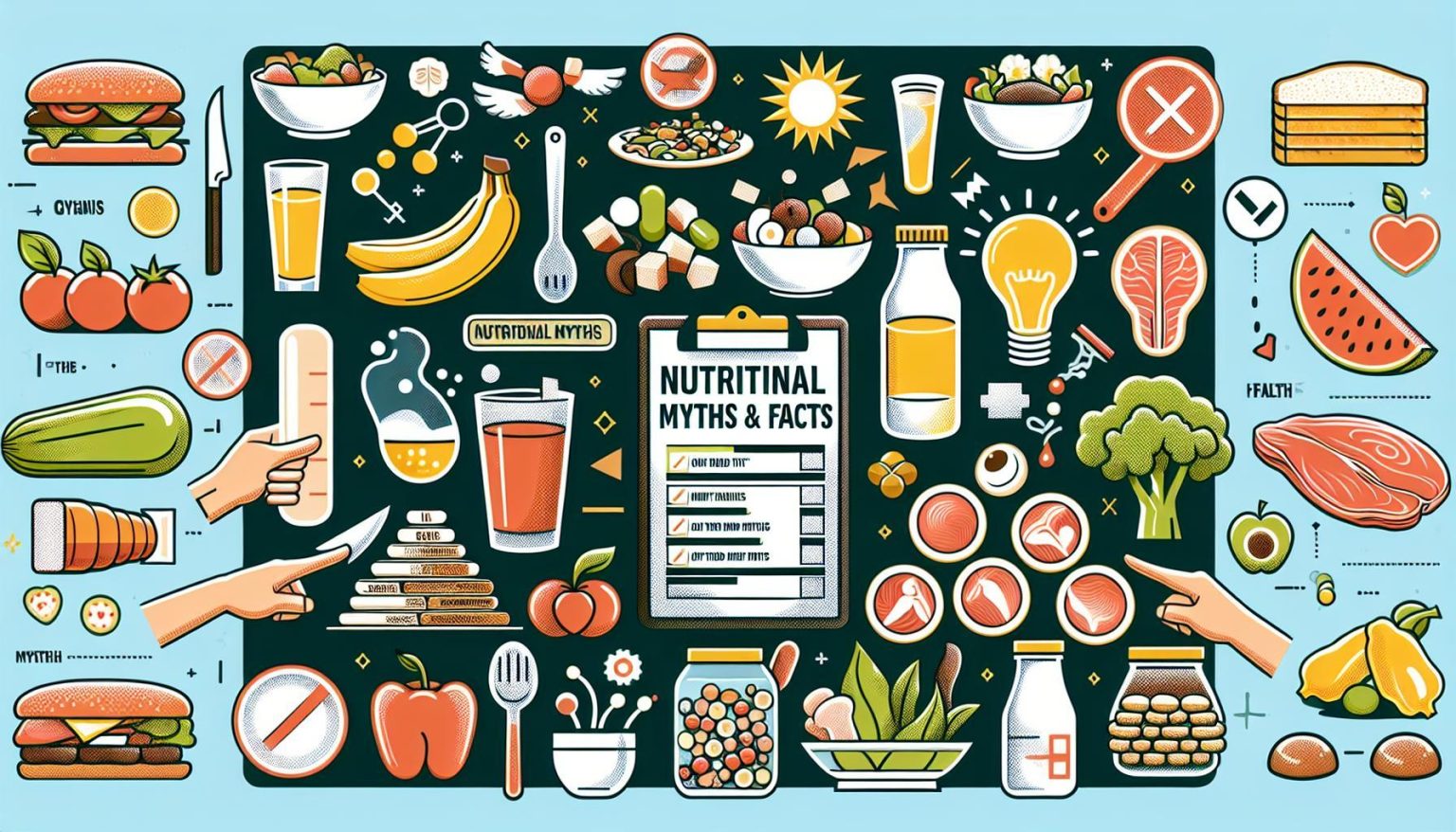Myth: “Fat-Free” Means Healthy
One pervasive myth that has ingrained itself into popular culture is that fat-free or low-fat foods are a healthier option. This is far from the truth. Manufacturers often replace the fat content in these products with sugar or artificial sweeteners to retain taste. Consequently, these “fat-free” alternatives may lead to weight gain or even diabetes which countries the fat-free myth.
The Reality about Low-Fat Products
Contrarily, some natural fats are necessary for your body to function adequately. Avocados, nuts, and olive oil, while high in fat, provide essential nutrients. It’s important to focus on quality rather than quantity. Consuming moderate amounts of natural fats is better than excessive consumption of processed, “fat-free” foods.
Myth: You Should Detox Your Body With a Juice Cleanse
Many believe that juice cleanses are an effective method to remove toxins from your body. However, this nutritional myth neglects the fact that your body, specifically your liver and kidneys, is designed to cleanse itself.
The Truth about Detoxification
Detox diets and juice cleanses lack the necessary fiber and protein your body needs. Though you might experience temporary weight loss, this is generally due to water loss and not fat reduction. In reality, a balanced diet with adequate water intake is the best detox for your body.
Myth: Gluten-Free Diets Benefit Everyone
Gluten-free diets have become widely popular, but unless you have celiac disease or gluten intolerance, this diet may do more harm than good.
Understanding Gluten
Ridding your diet of gluten without a medical reason can result in deficiencies in fiber and several essential nutrients. Moreover, many gluten-free products use refined grains and added sugars. Unless necessary, a well-rounded diet including all food groups is recommended.
Myth: Skipping Meals Can Aid Weight Loss
Another persistent myth is that skipping meals can assist in weight loss. This misconception again circles back to the fact that quick fixes aren’t sustainable long-term solutions.
The Balance of Calories
Skipping meals might result in a calorie deficit causing weight loss initially, but it can also lower your metabolism and lead to muscle mass loss. Consuming balanced meals throughout the day is key to effective and sustained weight management.
Myth: All Vegetarian Diets Are Healthy
Just as all meats aren’t unhealthy, all vegetarian diets aren’t automatically healthy. Processed vegetarian foods, artificially flavored snacks, and sweetened beverages can still pack in unhealthy amounts of fats and sugars.
Quality over Quantity
In a vegetarian diet, it’s crucial to base your meals on whole grains, fruits, vegetables, beans, lentils, nuts, and seeds while limiting your intake of processed food for optimal health.
Myth: Artificial Sweeteners Are Better Than Sugar
While artificial sweeteners may seem like a good low-calorie alternative to sugar, research suggests they may contribute to weight gain and other health issues.
Naturally Sweet Alternatives
If you’re looking to cut down on sugar, consider naturally sweet alternatives like fruits, honey, or dates. Always remember that moderation is key.
Conclusion
Dispelling these “Nutritional Myths and Facts” can help catalyze a more informed approach to eating, equipping us to make healthier choices. Nutrition is multifaceted and individualized. It’s always wise to consult with a healthcare or nutritional professional before drastically altering your diet.
Frequently Asked Questions
Is eating late at night bad for you?
Eating late at night doesn’t necessarily lead to weight gain unless it pushes your total calorie intake above your daily requirement.
Are all carbs bad for you?
No, not all carbs are bad. Complex carbs from whole grains, fruits, and vegetables provide necessary nutrients and energy.
Is veganism the healthiest diet?
A well-planned vegan diet can be healthy, but it requires careful attention to ensure you’re getting adequate essential nutrients like vitamin B12, iron, and omega-3 fatty acids.
Do I need to drink 8 glasses of water a day?
The “8 glass” rule isn’t necessarily right for everyone. Hydration needs can vary based on factors like age, sex, weight, activity level, and overall health.
Should I cut out all fats from my diet to lose weight?
No. Healthy fats are essential for the proper functioning of your body. It’s about choosing the right types of fat – like monounsaturated and polyunsaturated – and balancing intake of all macronutrients.










